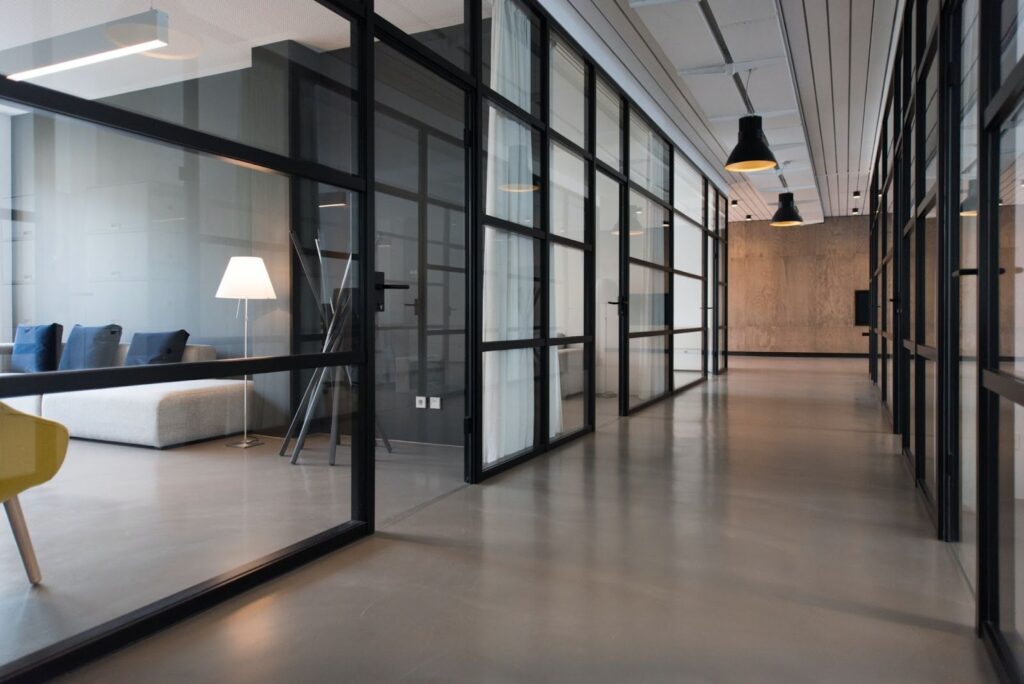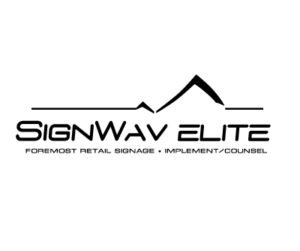Photo by Nastuh Abootalebi on Unsplash
Finding a retail space for lease is hard. There are a lot of things to consider, such as the location, and how much you need to pay for rent. Once you find a good space with cheap monthly rent, it can be tempting to sign the agreement right away, but the cost of rent isn’t the only factor you need to look into when it comes to expenses.
Leasing retail space comes with other expenses, and knowing what they are is important for your business. If you’re not aware of these expenses, there’s a chance that you’ll get taken advantage of. That’s a huge loss, especially for companies that are in their early years.
Finding out as early as possible about the other expenses you may face when you’re leasing a retail space lets you budget wisely. This way, you’ll have a better understanding of how much it will take to operate a business in a new place. To help you get started, this article lists down all the other expenses you need to know when leasing a commercial space.
Leasing a Retail Space vs. Buying a Commercial Building: Which Is Better?
If you are a business that needs physical space, you’d be thinking of buying a commercial building. After all, you’ll have total control over the property and the option to rent it out in the future. But the problem is, it takes a lot of time, financing, and due diligence.
Opting for a retail space to lease can be a lot more beneficial for you, especially if you’re just starting off. With a commercial space, you don’t need a huge capital upfront. Even if there are interests while you’re paying, it’s still cheaper than paying in one go. Not only that but the entire lease amount is tax-deductible.
This saves you a lot of money, which you can allot to other things such as operating and maintenance costs.
That’s what makes this appealing for new businesses and those that plan on expanding. Leasing is also great if you’re staying for a specific amount of time. You can extend your stay if you want to, or wait until the end of your term and move out.
Other Expenses to Watch Out for Before Signing a Leasing Agreement
As a new business, it helps a lot to know how much you need to pay for the office space you’re renting. And this includes other factors aside from rent. Taking into account these additional costs can guarantee you long-term profitability for your business.
Some of these other expenses associated with renting an office space include:
1. Triple Net Lease Expenses
In commercial real estate, triple-net leases are more common than in retail. But, if you are looking for shop space to rent in a mall, you might encounter this type of contract. Triple-net leases also come with higher added costs, despite having a lower base rent. So, be sure to check your budget before committing to anything.
Below are the three expense categories you will find under this agreement:
- Property taxes: This cost is a significant factor in leasing space in all states.
- Insurance: The cost of commercial property insurance varies, depending on the size of the space. The average retailer pays less than $45 per month for general liability insurance.
- Common area maintenance: This cost varies according to the property’s maintenance requirements. Consider security, landscaping, and cleaning services, as well as shared space maintenance.
So, when should you consider a triple-net lease?
If you want more control over the look and layout of your store, triple net leases are a great option. With this type of rental agreement, you can customize the look and feel of your shop.
It is also a great option if you plan to stay in the same place for a long time.
Triple-net leases are usually longer than most retail leases. It gives you more time to build your business, and has a more flexible tax and insurance increase than a shop space to rent.
2. Utility Expenses
Aside from rent, you’ll have to pay utilities. Even if you’re renting a small business space, you need to factor in the added costs of utilities.
In 2021, retailers spent an average of 11.18 cents per kilowatt hour. Although you can get an estimate, you also need to consider your specific needs. This can help you decide if it’s a suitable location, or if there’s somewhere better.
Your landlord often pays for utility costs, but sometimes you pay for them. If that’s the case, the lessor includes a statement about utilities in the lease, including:
- Lighting.
- Electrical.
- Heating, air conditioning, and ventilation.
- Water.
- Any trade-specific utilities you might need.
Electricity is one of the most expensive operating expenses for many tenants. Many lessors use electricity clauses to increase their profits without raising rents. Make sure your landlord doesn’t drive up your utility bills. Check your commercial lease agreement and ask the owner to clarify some clauses.
You should also ask them about how you can pay for these utilities. For example, you can cover electricity payments in one of these ways: direct metering or sub-metering.
Direct metering and submetering are similar, wherein you only pay for the energy you consume. The only difference is that with direct metering, the utility department will measure your electricity usage. That means you will get a residential rate for your bill.
Whereas in submetering, the landlord owns the meter, and you will get a commercial rate for your bill. This is often cheaper than residential rates, for both the tenant and the landlord.
3. Fit-Out Expenses
Small business spaces often come with an HVAC system and no furniture. The only way you will get everything you need out of any commercial space for rent is if you personalize it. The reason is that most retail spaces for lease are bare and need some work.
A flexible fit-out lets you change it over time, especially if you want to change your retail style. But fit-outs also have to follow building and safety regulations.
Getting a big or small commercial space for rent is your choice. Remember that your needs and budget must match when looking for retail space for lease. For reference, it can cost between $250 and $2,000 per square meter.
It doesn’t mean you have to go over the top. You are better off leasing a retail space that already has some of what you need. Find the perfect retail space for your company by knowing what you need to succeed. Don’t forget the amenities you’ll need during and after the build-out.
4. Marketing Expenses
Opening your retail space to the public might seem far away at the beginning of your search, but it’s never too early to plan how to market it. Promote your store’s grand opening to generate hype and anticipation. Keep in mind that how much money you set aside for it is up to you.
Below are two ways you can spend the budget for marketing when considering a retail space to lease.
For the Lessor
Leases may specify that you must contribute to marketing and promotional expenses. Shopping centers use these funds for advertising and promotion. Know your marketing or promotional contributions before signing the lease.
Make sure you get a say in limiting your expenses. You can do this by stipulating in your lease that you are paying a certain amount for marketing funds. If you have to pay 5% of your rent to the marketing fund, you might negotiate it down to 1%.
For Your Store Traffic
Even though you can’t control customer spending in your area, there are things you can do to get more customers. One way is through advertising to increase your in-store traffic.
Advertising and traffic go hand in hand. Customers come to your door when you advertise, but advertising costs can consume a significant part of your budget. How much you need to spend on advertising can help you figure out how much retail space you can afford to lease.
Here’s how your leased store space affects traffic, and how much advertising you need:
- High-traffic area: If you choose a retail space for lease with high traffic, it may offset your advertising costs. You can get more traffic from anchor tenants, like department stores and chain stores. More traffic allows you to spend less money on advertising, but you pay a higher rent.
- Low traffic area: It’s okay to save on rent if the space you want doesn’t generate a lot of traffic on its own. Your business will be more profitable if you lower your rent. Lowering your rent will allow you to save money on advertising.
You’re the one who decides your marketing strategy, but it’s practical to budget ahead. Besides, both large and small commercial spaces for rent have marketing expenses. The only difference is that of personal marketing. Renting a small business space can make it easier to make personal connections.
5. Legal Costs
Negotiating and preparing a lease needs legal fees, which you can agree on with your lessor. If you can, negotiate that each party pays its legal costs. You can also settle to limit your contribution to the landlord’s costs.
It also helps to avoid clauses asking you to pay the landlord’s legal fees if a dispute arises. But, if the Commercial Tenancy (CT) Act governs your lease, the landlord can’t require you to pay legal fees for:
- Lease preparation, negotiation, execution, renewal, or extension.
- Getting the mortgage lender’s approval (if there’s a mortgage on the property).
- Observing the CT Act.
In case of a lease assignment or sublease, the landlord can claim legal fees from you.
6. Base Rent Increases
In most cases, the base rent you negotiated is only for the initial year. Then, your rent will rise in the succeeding years, often by 3% or 4%. When times are tough, landlords will bargain for a base rent that does not increase over the term. These annual growths can catch you off guard.
7. Furniture, Fixtures, and Equipment
Retail spaces aren’t just tables and chairs. You also need to consider interior needs, depending on the type of business you’re operating. Just think about what you and your employees will need in your day-to-day operations.
If you’re a restaurant, you may need cooking equipment, silverware, and dinnerware. But, generally, you also need to have computers, workstations, and fixtures for restrooms.
You should set aside money for these expenses right away because you need them to start your business.
Bottom Line
Having a retail lease is one of the most vital decisions for any retailer. A lot is at stake based on your decisions, since there are many experienced and savvy players. So, make sure that you hire a qualified agent that you trust to represent your interests.
Also, a retail space to lease is just one piece of the puzzle. There are many factors to consider, but focus on the basics: what size space do you need, and how much can you afford? By doing this, you can avoid spending a lot on what should be your most efficient choice when choosing a business space.













 The 2024 virtual Men’s Round Table will be held Q4, 2024, date TBD.
The 2024 virtual Men’s Round Table will be held Q4, 2024, date TBD.













